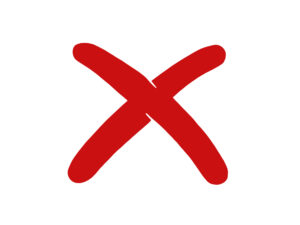Is The Ordinary an ethical brand?
The Ordinary is one of many subsidiaries majority-owned by Estée Lauder Companies Inc. The Ordinary unfortunately has been given a low ethical grade from The Good Shopping Guide. The Ordinary is a skincare and make up product line, and is one arm of DECIEM The Abnormal Beauty Company, a Toronto-based beauty brand, founded by the late entrepreneur, Brandon Truaxe.
In 2021, Estée Lauder increased its ownership of The Ordinary to 76%, and is now the majority-owner of The Ordinary.
The Ordinary’s poor Good Shopping Guide ethical rating in our Ethical Skincare Ratings Table demonstrates how far The Ordinary currently falls short of our ethical standard for this sector. The Ordinary and its parent firm, Estée Lauder Companies Inc., must make a number of serious changes before being eligible for our Ethical Accreditation.
In which categories does The Ordinary receive a high rating?
The Ordinary receives a high rating in the Nuclear Power, Fossil Fuels and Armaments categories, as neither the brand nor its parent company directly profit from these unethical industries.
In which categories does The Ordinary receive a low rating?
Unfortunately, The Ordinary receives a low rating in the Public Record Criticisms criterion, as Estée Lauder has been linked to numerous unethical practices, such as human rights abuses.
According to accounts from women working on palm oil farms in Malaysia and Indonesia, workers were subjected to severe employment conditions, including physical and sexual assault and exposure to dangerous chemicals. Women who had been using hazardous pesticides on a plantation for years suffered from fevers, coughs, and nosebleeds while working without any safety gear. These women cannot afford to visit a doctor because their daily income is only an average of $2. Estée Lauder was named as one of the suppliers linked to this case through its palm oil supply chain.
How can The Ordinary improve its ethical rating?
The Good Shopping Guide ranks The Ordinary’s corporate ethics using 15 standards. Estée Lauder’s role in the unethical production of palm oil is just one example of the numerous ethical issues the company must address to attain a higher ethical rating in our research.
Ethical performance in category
GSG score
GSG category benchmark
Ethical Rating
Environment
-
Environmental Report
Good
-
Genetic Modification
Poor
-
Organic
Poor
-
Nuclear Power
Good
-
Fossil Fuels
Good
Animal
-
Animal Welfare
Poor
-
Vegetarian/Vegan Verified
Acceptable
People
-
Armaments
Good
-
Irresponsible Marketing
Poor
-
Political Donations
Poor
Other
-
Ethical Accreditation
Poor
-
Public Record Criticisms
Poor
-
Public Record Criticisms+
Poor
= GSG Top Rating = GSG Middle Rating = GSG Bottom Rating
